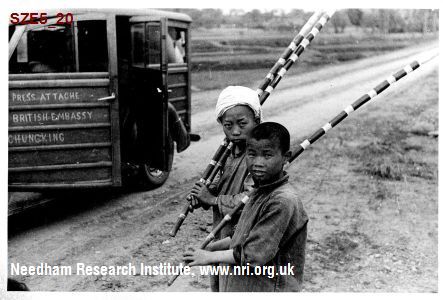
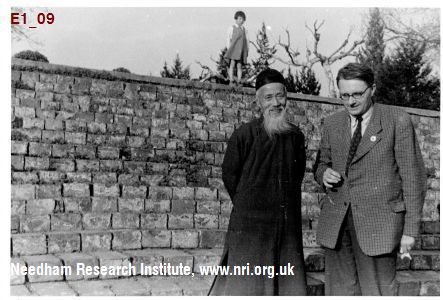 In early July, I began work at the Needham Research Institute in Cambridge, which holds a unique collection of material relating to the life and activities of Dr Joseph Needham (1900-1995). He was a noted biochemist whose varied career went on to included holding prominent posts at the University of Cambridge, acting as the driving force behind putting the ‘S’ in UNESCO (the United Nations Educational, Scientific and Cultural Organization), and dedicating the latter half of his life to the history of science in China, particularly through his Science and Civilisation in China project.
In early July, I began work at the Needham Research Institute in Cambridge, which holds a unique collection of material relating to the life and activities of Dr Joseph Needham (1900-1995). He was a noted biochemist whose varied career went on to included holding prominent posts at the University of Cambridge, acting as the driving force behind putting the ‘S’ in UNESCO (the United Nations Educational, Scientific and Cultural Organization), and dedicating the latter half of his life to the history of science in China, particularly through his Science and Civilisation in China project.
Between 1943 and 1946, Dr Needham crisscrossed war-torn China as director of the British Council-sponsored Sino-British Science Cooperation Office (SBSCO). Through his travels, he developed relationships with hundreds of Chinese scientists as he visited the universities, laboratories, and factories in which they were attempting to continue work and research under extraordinary conditions. Dr. Needham and the SBSCO sought to support their work and strengthen Sino-British scientific links. They arranged to have scientific equipment, foreign scientific journals, and other materials brought into China via the treacherous Burma Road and flown in by the RAF, as well as sending Chinese scientific journals overseas and helping get Chinese research published in Western journals.
What Are We Up To?
Thanks to the BICC’s Cultural Engagement Partnership, I am working with the NRI’s Librarian, John Moffett, on a series of activities that focus on Joseph Needham’s wartime activities in China. The first is a major digitisation project that will make a collection of material freely available in high resolution via the Cambridge Digital Library. During his travels, Dr Needham took and collected over 1,200 photos, as well as keeping a series of incredibly detailed travel dairies and sketchbooks.
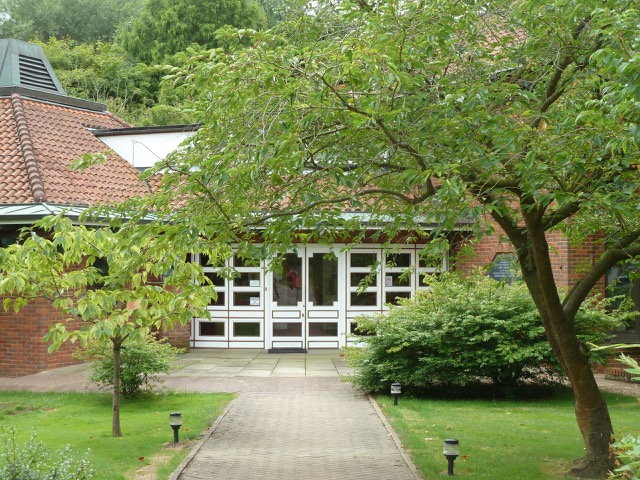
Together, these give us a fascinating and unique portrait of his own journeys and life throughout ‘free China’, from the country’s wartime capital, Chongqing (Chungking), to remote villages in the Gobi desert and research stations in Sichuan Province. Along the ways, he got to know numerous important Chinese politicians and scientists, such as Zhu Kezhen (Coching Chu). His journeys not only intersected with those of British diplomat and explorer, Eric Teichman, as well as radical New Zealander, Rewi Alley, an important figure in the ‘Gung Ho’ Chinese Industrial Cooperatives during the war who went on to become one of the People’s Republic of China’s most famous ‘foreign friends’. This collection will also be of interest to anyone interested in the history of organisations like the China Inland Mission or Friends’ Ambulance Unit.
Our project will be bringing the whole collection together in one place – and make it all available in high resolution – for the first time. We’re also creating a bunch of new material that will help make this collection even more engaging and easy to use, including indexes of people, places, and institutions, as well as updating and editing transcripts of the dairies. This should all be available in the early New Year. In the meantime, you can see a selection of Dr Needham’s dairies and photos online thanks to the International Dunhuang Project, while lower resolution versions of Dr. Needham’s wartime photos are currently available via Visualising China.
We’ve also been hard at work preparing some free public events. On Saturday, 12 September, the Needham Research Institute will be taking part in the Open Cambridge weekend for the very first time. We’ll be a holding trio of talks about Dr Needham’s time in China during the Second World War, along with tours of the beautiful NRI building and its East Asian Science Library. More details can be found here.
Those joining us on 12 September will be the first people to be able to see our new ‘pop-up exhibition’, Chinese Wartime Science Through the Lens of Joseph Needham, featuring highlights from the Needham wartime collection. This exhibition has been designed to travel, so it’ll likely be popping up in other places, including Bristol, later in the autumn and New Year. We’ll keep you posted!
Who Am I?
My doctorate in history at the University of Bristol focused on the intersection of international science and Chinese foreign relations. That project looked at Chinese scientists’ state-sponsored international activities in the early decades of the Cold War, particularly their evolving interactions with organisations such as the World Federation of Scientific Workers, at events like the Pugwash Conferences on Science and World Affairs, as well as with individual scientists in the West, particularly those in Britain. This BICC Cultural Engagement Partnership project with the NRI has been an opportunity to make use of my own research background and interests while helping increase awareness about and widen access to the NRI’s fascinating archival collection.

I’ve been very lucky to be based in the Department of History while at Bristol, in no small part because it is deeply involved in public history in its many forms, from projects like Know Your Bristol and Impact of Conflict, right up to the new Hong Kong History Project. As a Deas Scholar, I’ve had the chance to help out with many aspects of the department’s annual Past Matters Festival of History, which includes a whole range of different public events, which have included not only lectures and film screenings, but also neighbourhood and family history days.
I’ll be writing more posts with updates about what we’re up to and the latest developments as I get further into this BICC Cultural Engagement Partnership project with the Needham Research Institute. In the meantime, do be sure to join us in Cambridge on Saturday, 12September to see first-hand what we’ve done so far.
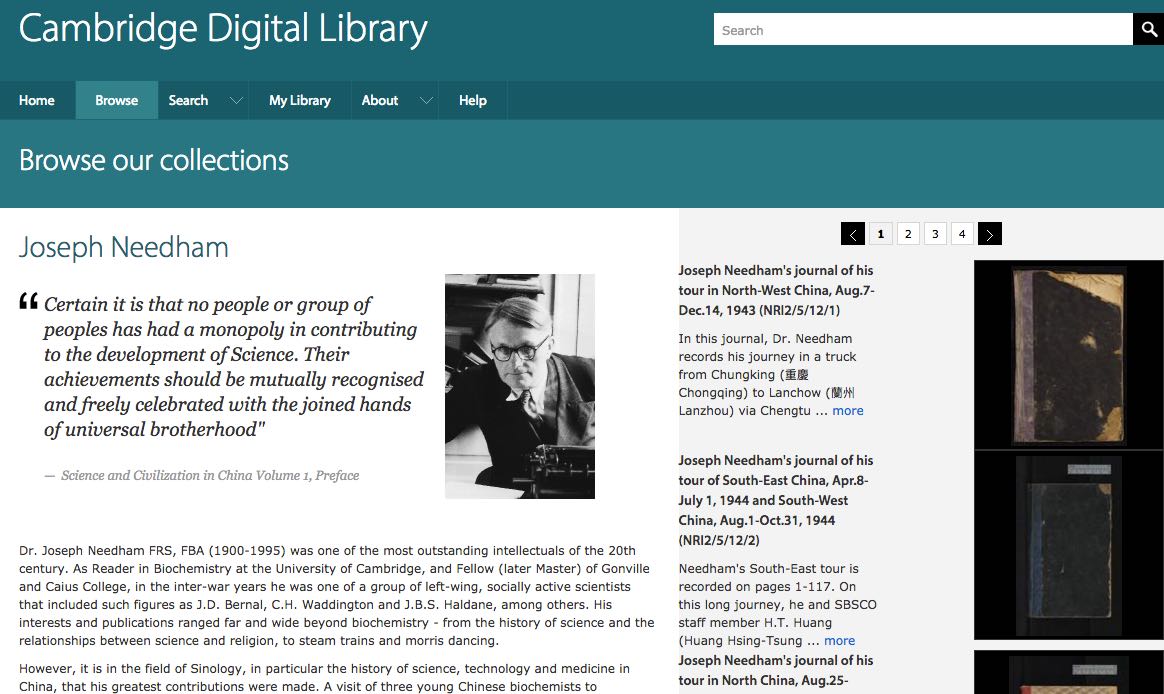 This is the first time that much of this material has been available online in high resolution thanks to the talented team in the University Library’s Digital Content Unit, who digitised hundreds of pages and photographs as part of this project. This material even includes photographs of Chiang Kai-shek’s visit to the Chongqing Mining and Industrial Exhibition in 1944!
This is the first time that much of this material has been available online in high resolution thanks to the talented team in the University Library’s Digital Content Unit, who digitised hundreds of pages and photographs as part of this project. This material even includes photographs of Chiang Kai-shek’s visit to the Chongqing Mining and Industrial Exhibition in 1944!
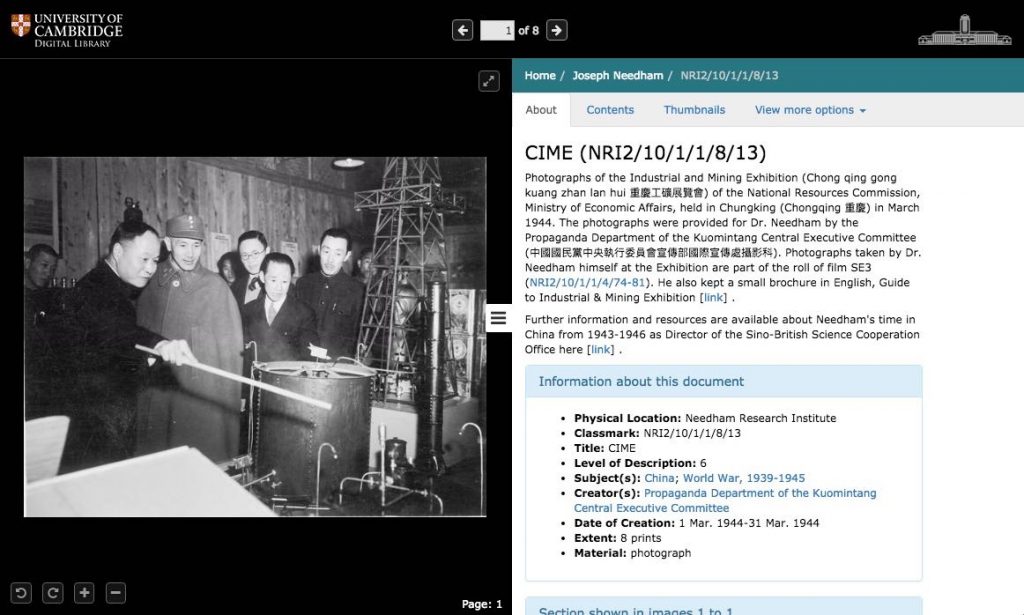
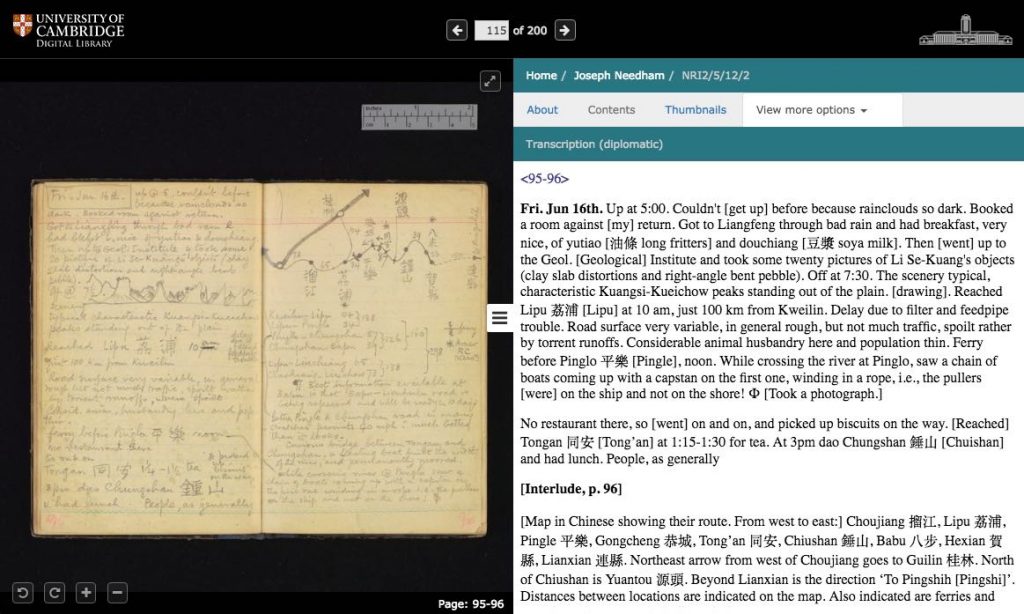
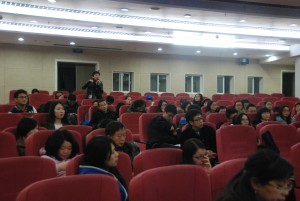
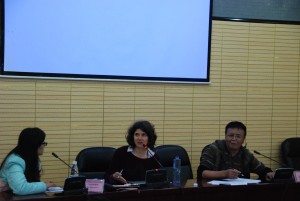 Following the screenings in UK and China, the film received favourable reviews in national and international media.
Following the screenings in UK and China, the film received favourable reviews in national and international media.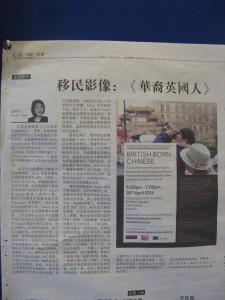
![BBC-British Born Chinese-2177[1]](https://www.bicc.ac.uk/files/2016/03/BBC-British-Born-Chinese-21771-300x225.jpg) In February 2016 ‘British Born Chinese’ was screened as part of the LSE ‘Food for Thought’ Literary festival.
In February 2016 ‘British Born Chinese’ was screened as part of the LSE ‘Food for Thought’ Literary festival.
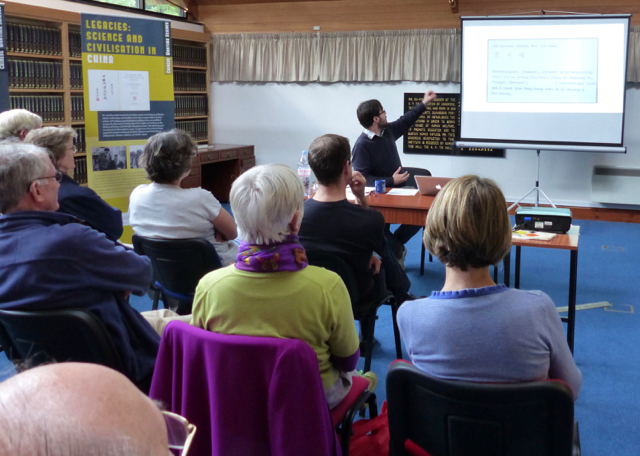
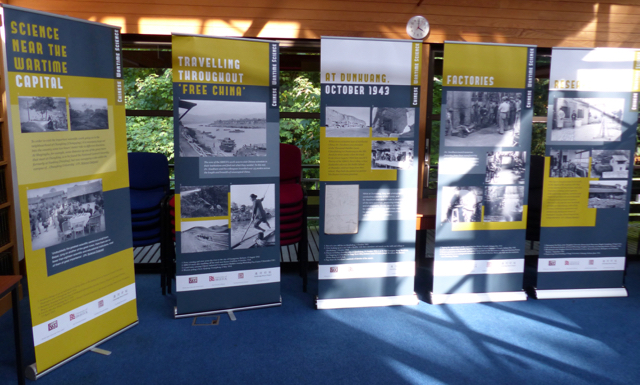
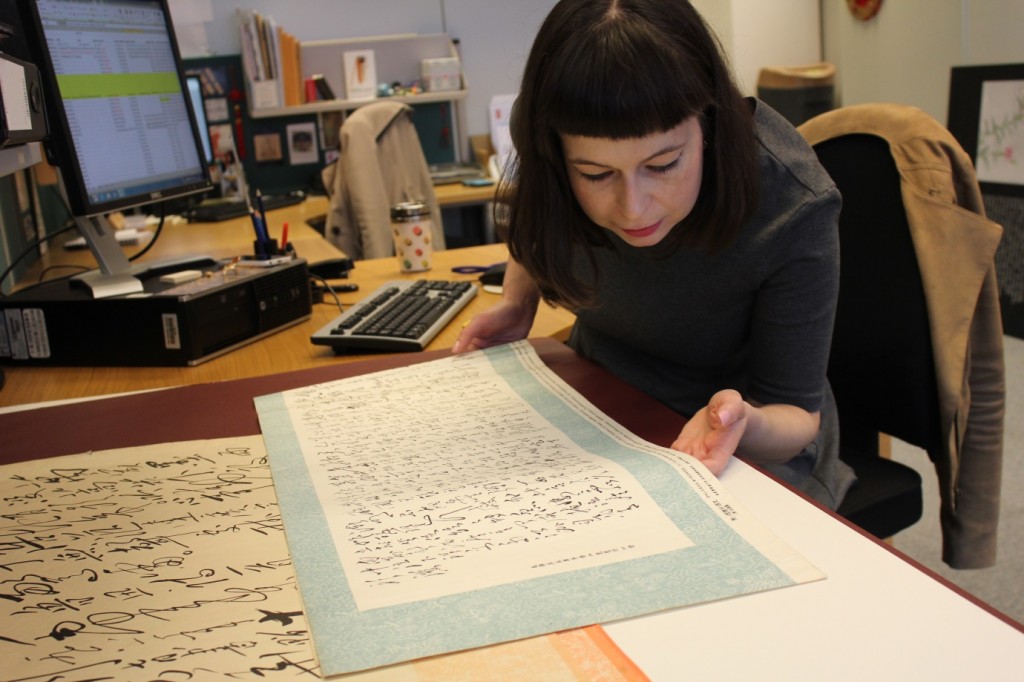
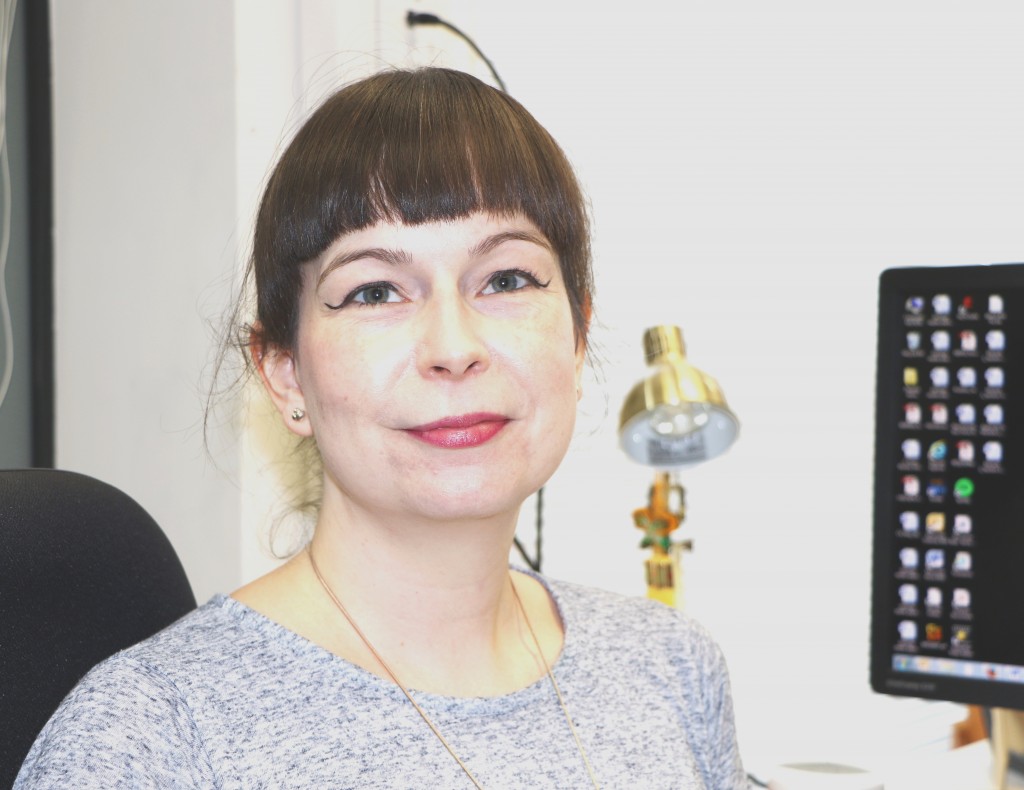




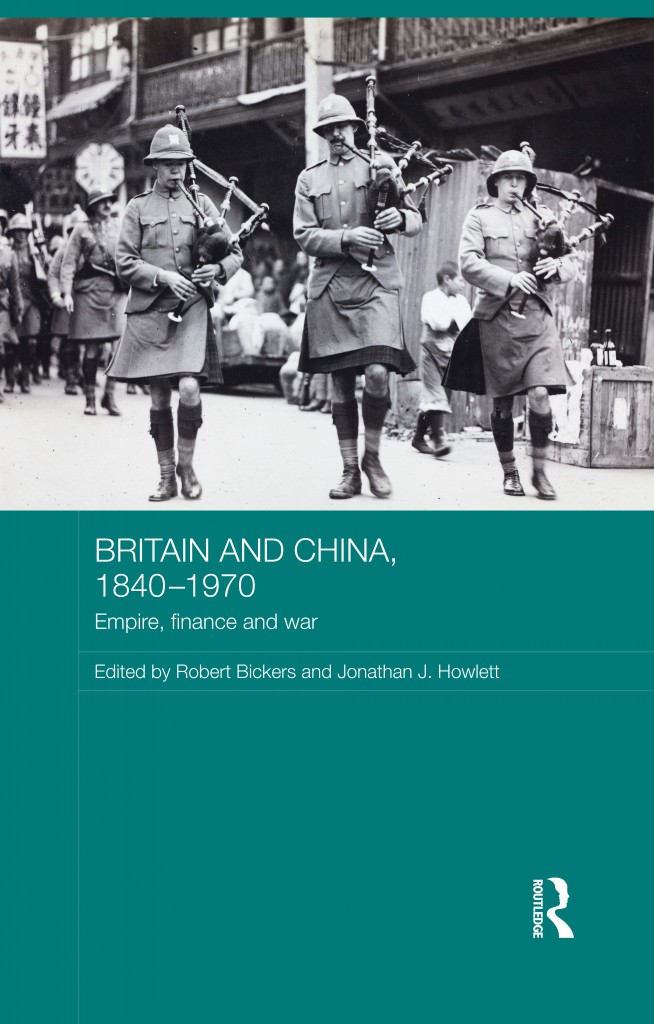
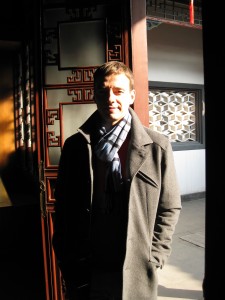 My Ph.D. was completed at the University of Bristol with support from the British Inter-University China Centre’s language based area studies scheme. As such, I was very fortunate to receive a year of language training at Peking University, and further training in reading classical Chinese Buddhist texts with my supervisor, Dr. John Kieschnick, in Bristol. My thesis, entitled ‘Voices of Experience: Modernity and Buddhist Meditation in Republican-era China,’ examines Chinese Buddhism’s response to the intellectual and political reconstructions which took place at the beginning of twentieth century. It looks at the writings of a number of important Buddhist figures from the period, examines the discourse taking place in the then newly emerging Buddhist journals, and compares these findings with current scholarly consensus regarding Buddhism’s adaptation to the modern period. I am currently working on converting this thesis into a monograph, and am preparing a journal article on the prominent reformist monk Shi Yuanying’s presentation of The Awakening of Faith in Mahāyāna. My intention, moreover, is to continue the research developed during my Ph.D., and I am therefore working on a project to investigate the reception of classical Buddhist mediation manuals in Republican era Buddhist journals, and the manner in which Buddhist meditation was secularised and made part of the self-strengthening discourse at this time.
My Ph.D. was completed at the University of Bristol with support from the British Inter-University China Centre’s language based area studies scheme. As such, I was very fortunate to receive a year of language training at Peking University, and further training in reading classical Chinese Buddhist texts with my supervisor, Dr. John Kieschnick, in Bristol. My thesis, entitled ‘Voices of Experience: Modernity and Buddhist Meditation in Republican-era China,’ examines Chinese Buddhism’s response to the intellectual and political reconstructions which took place at the beginning of twentieth century. It looks at the writings of a number of important Buddhist figures from the period, examines the discourse taking place in the then newly emerging Buddhist journals, and compares these findings with current scholarly consensus regarding Buddhism’s adaptation to the modern period. I am currently working on converting this thesis into a monograph, and am preparing a journal article on the prominent reformist monk Shi Yuanying’s presentation of The Awakening of Faith in Mahāyāna. My intention, moreover, is to continue the research developed during my Ph.D., and I am therefore working on a project to investigate the reception of classical Buddhist mediation manuals in Republican era Buddhist journals, and the manner in which Buddhist meditation was secularised and made part of the self-strengthening discourse at this time.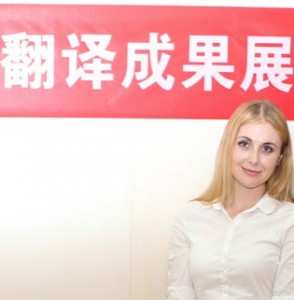 I have always had a deep interest in Chinese culture, since as far back as I can remember. This grew to become a strong interest in the country’s language, society, and politics. What the BICC PhD scholarship has given me is an opportunity to develop an academic-based career and a life for myself in China.
I have always had a deep interest in Chinese culture, since as far back as I can remember. This grew to become a strong interest in the country’s language, society, and politics. What the BICC PhD scholarship has given me is an opportunity to develop an academic-based career and a life for myself in China.